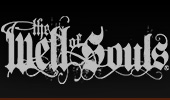The Well of Souls (The Final Arbiter of Destiny) - Chapter 4: The Great Exodus
What the people once knew was gone; the world had changed. The land was covered with a strange darkness. Those that produced, succeeded, and chose triumph, realizing that their victories in life were only feeding the forces that were trying to enslave them and the fate of their country, decided to emigrate. They decided to go to the undeveloped north and the light. Some went to the low coastal region of the northwest and others to the wooded mountainous regions of the northeast. Together, they brought their Book of Light that had been rejected wholesale by those who remained in darkness.
The world was now separated: One side was The People of Darkness, who focused on the unfairness of life and declared The Struggle as unjust. They believed that attendance to the general welfare of the public at large was a greater good than any one individual’s right to freedom; and enforcement of laws to ensure the needs of society’s general welfare are met as well. The other side, The People of Light, who fully subscribed to The Struggle, believed the idea of fairness to be a useless and destructive distraction that leads to defeat, tyranny, and less for all. They believed that people should be free to be all they can be and through their struggles, benefits for all are created. And in between them was a great mountainous area, creating a great divide.
Before Cull’s society could realize it, all of the achievers, inventors, and producers—those that refused to live in slavery— had organized and left. They took with them only things they could carry and had room for. They left their great factories, plantations, and lumber mills desolate. Those with their hands out didn’t realize it as they didn’t work nor felt compelled to do so. The great objection wasn’t that they were content, as they always had some discomfort that needed relief; it was they took joy in their servitude to laziness.
Cull’s government was now one without achievement or productive people. Suddenly, there was no one to collect monies from. All they had were abandoned factories, plantations, and lumber mills. Poverty, starvation, and disease spread fast and those who were left became desperate. Now the rules were different. There was no sympathy for others, as those who practiced it were no longer concerned about their peace of mind and sympathy was the first norm of society to be abandoned. It was immediately overshadowed by other motivations brought forward, such as, selfishness, greed, and self-preservation. Quickly, those with their hands out became violent criminals, caring for nobody but themselves. Altruism was nonexistent. The land got only darker and darker. The only way Cull could control the people and the chaos was to gather a militaristic police force to keep the peace. The police cooperated, as they were the first ones to benefit when it came to handouts from Cull. The country deteriorated into a military dictatorship.
The first thing Cull did was to abolish the protected rights and government structure laid out in the Book of Light. He created a new contract with the people. The current pact didn’t empower him to do it, but there was no one left willing to oppose him, so he did it by decree. The new contract was based on what he was going to provide to the people: an equal standard of living, a low one, and protection against failure. Of course, the equality standard only applied to the proletariat, not Cull or those who worked for him. Their circumstances were special. In exchange for the protections given, Cull empowered himself with absolute power and infallibility. This new pact with the people was called the Book of Darkness and Cull called his people his “People of Darkness” and Cull was satisfied.



